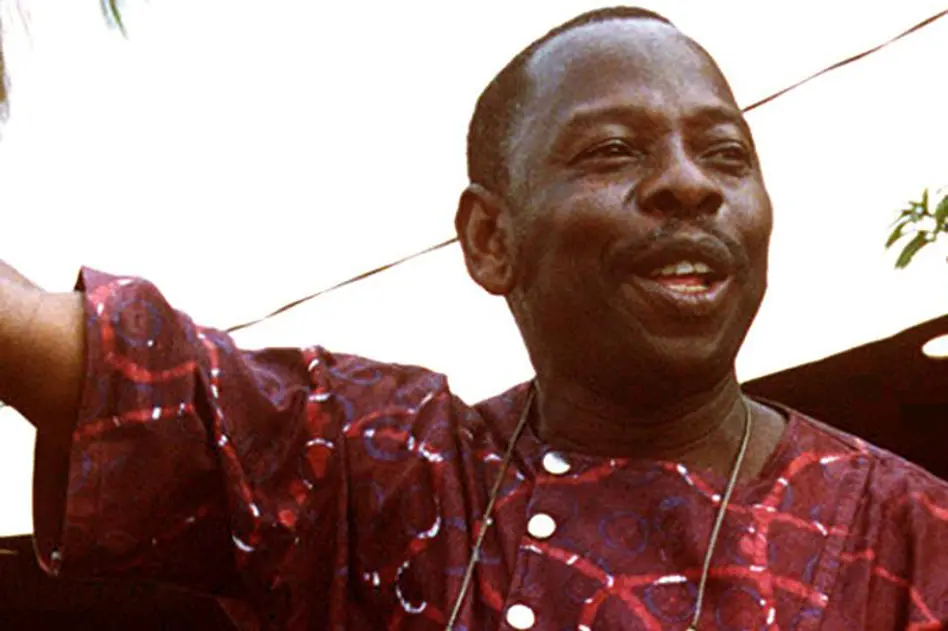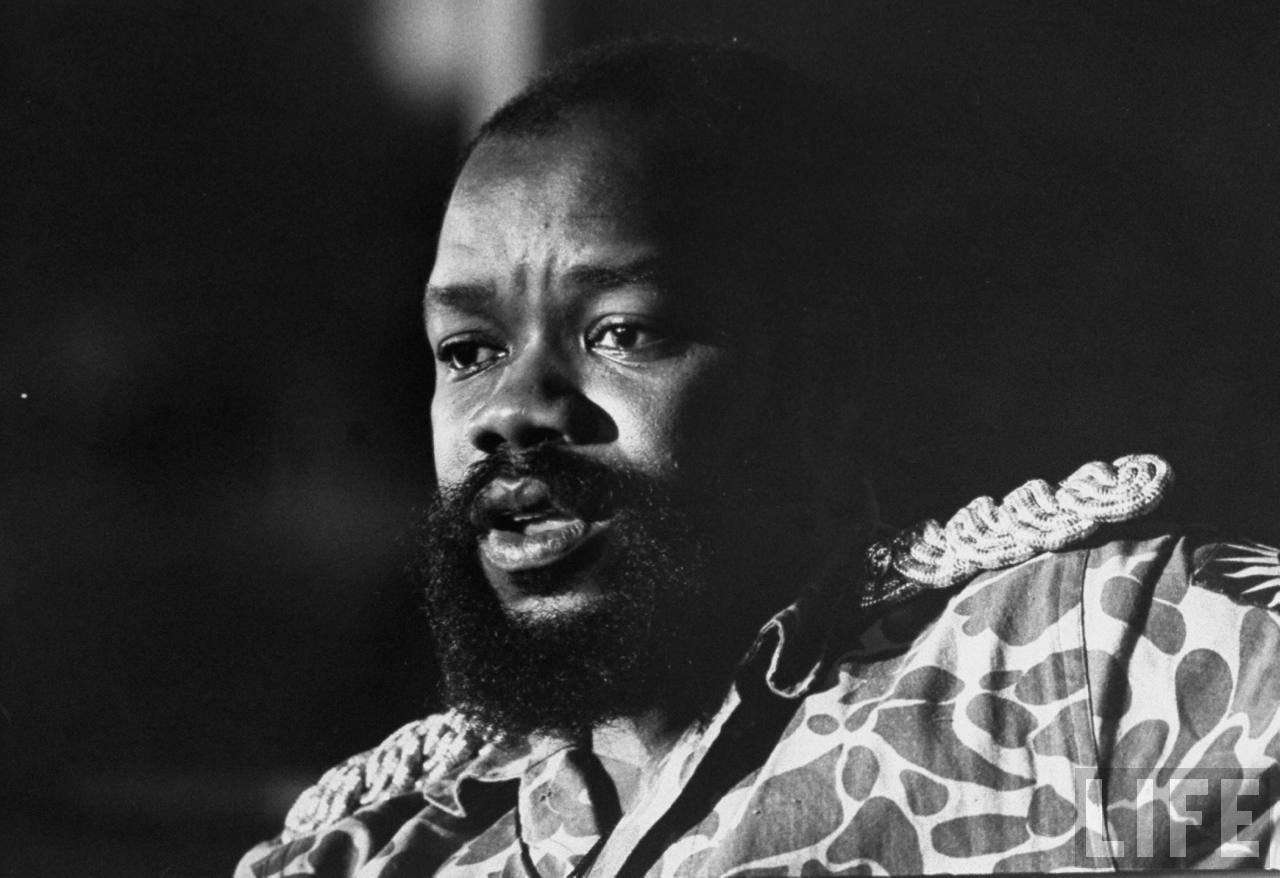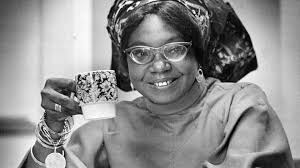
Ken Saro-Wiwa: The Voice of Nigeria’s Environmental Justice Movement
Kenule Beeson Saro-Wiwa, known simply as Ken Saro-Wiwa, was a Nigerian writer, environmental activist, and outspoken critic of the Nigerian government and oil corporations. Known internationally as a leading voice against environmental degradation, Saro-Wiwa devoted his life to defending the rights of the Ogoni people and protecting the Niger Delta from the adverse effects of oil extraction. His activism cost him his life but left an enduring legacy, inspiring environmental justice movements worldwide. This biography explores the life, activism, and impact of Ken Saro-Wiwa.
Early Life and Education
Ken Saro-Wiwa was born on October 10, 1941, in Bori, in the Ogoni region of Nigeria’s Niger Delta. He grew up in a well-respected family and demonstrated academic brilliance early on, studying at Government College Umuahia before attending the University of Ibadan. Saro-Wiwa initially pursued a career in teaching and administration, serving as a commissioner for education in the Rivers State government. However, his early experiences with social issues and environmental degradation in the Niger Delta soon drew him toward activism.
Writing and Advocacy
Saro-Wiwa’s activism was also reflected in his writing. He authored numerous works, including novels, essays, and plays that highlighted social injustice and environmental issues. His popular television series, Basi & Company, became a household name in Nigeria, offering social commentary through humor. Through his novels like Sozaboy, Saro-Wiwa explored themes of corruption, war, and exploitation, using literature to shed light on Nigeria’s political landscape.
Environmental Activism and MOSOP
In 1990, Saro-Wiwa founded the Movement for the Survival of the Ogoni People (MOSOP), an organization aimed at protecting the environmental rights of the Ogoni people and advocating for compensation from the oil companies operating in the Niger Delta. MOSOP’s activities highlighted the severe ecological damage and health risks caused by oil spills, gas flaring, and pollution from multinational corporations, notably Shell Petroleum Development Company.
Saro-Wiwa’s leadership in MOSOP drew international attention to the Niger Delta’s plight, and he became a symbol of resistance against environmental injustice. He championed the Ogoni Bill of Rights, which demanded economic compensation and environmental protections for the Ogoni people, sparking a movement that resonated with communities around the world facing similar issues.
Conflict with the Nigerian Government
As MOSOP’s influence grew, Saro-Wiwa and other activists increasingly faced resistance from the Nigerian government, which maintained close ties with the oil industry. The military-led regime viewed MOSOP’s demands as a threat to their interests, leading to severe crackdowns on Ogoni communities. Saro-Wiwa was repeatedly arrested, harassed, and threatened but remained steadfast in his mission to bring attention to environmental justice and human rights violations.
Arrest and Execution
In 1994, after a series of protests and intensified activism, Saro-Wiwa and eight other MOSOP leaders were arrested on charges of incitement, accused of involvement in the deaths of four pro-government Ogoni chiefs. Despite international outcry and widespread belief that the charges were politically motivated, Saro-Wiwa and the others were sentenced to death by a military tribunal in a highly controversial trial lacking due process.
On November 10, 1995, Ken Saro-Wiwa and the “Ogoni Nine” were executed, sparking global outrage and leading to Nigeria’s suspension from the Commonwealth of Nations. The executions drew attention to the Nigerian government’s human rights abuses and marked a turning point in global awareness of environmental justice issues.
Legacy and Impact on Environmental Justice
Ken Saro-Wiwa’s legacy endures as a symbol of the fight for environmental and social justice. His activism inspired movements around the world, particularly in communities affected by extractive industries. Organizations such as Amnesty International and environmental advocacy groups continue to cite his work, pressing for corporate accountability and the protection of indigenous rights.
In Nigeria, Saro-Wiwa’s death remains a stark reminder of the cost of speaking truth to power. The environmental struggles of the Niger Delta persist, with activists drawing on Saro-Wiwa’s vision for a just and sustainable future. Memorials, including documentaries, books, and global events, honor his contributions and sacrifices, emphasizing the importance of his work in the ongoing global movement for environmental justice.
Notable Quotes
“The environment is man’s first right. Without a clean environment, man cannot exist to claim other rights, be they political, social, or economic.”
“I am more dangerous dead than alive.”
Conclusion
Ken Saro-Wiwa’s courage and dedication to environmental justice changed the way the world views corporate accountability and indigenous rights. His legacy as a writer, activist, and martyr lives on in the movements he inspired, advocating for the rights of marginalized communities and challenging environmental degradation. Ken Saro-Wiwa’s life and sacrifice remain a testament to the power of resilience and a profound reminder of the need to protect the environment for future generations.




I like the valuable information you provide in your articles. I’ll bookmark your weblog and check again here frequently. I’m quite sure I’ll learn a lot of new stuff right here! Good luck for the next!